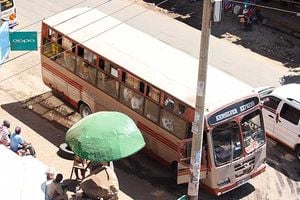Pull out all the stops to prevent economic crisis
What you need to know:
- The concern is that the government does not demonstrate any strategic plan of resolving the crisis
- On paper, the development projects hold promise for the country’s prosperity.
The country is staring at an economic crisis. Already, there are concerns that the government may not meet its obligations, such as paying salaries, servicing debts and other recurrent expenditures.
But this has been building up for years, and only worsened by the coronavirus pandemic, which has shrunk economies as productive ventures collapsed. The pandemic forced the government to introduce tax waivers to cushion citizens, but it reduced its revenues. Now, the tax waivers will be withdrawn in the New Year.
Broadly, the country has been going through an economic downturn due to several factors, including mismanagement, wastage and corruption. And there is a context to this. When the current administration came to power in 2013, it set out to roll out major infrastructure projects to spur economic development.
Most of them were not properly planned for. Some were inherited from the previous administration, such as the Standard Gauge Railway, and the first phase from Mombasa to Nairobi was completed in 2017.
On paper, the development projects hold promise for the country’s prosperity. But most of them have turned out to be cash cows. SGR, for instance, was overpriced and cannot recoup the cost. In fact, it is incurring huge losses.
Many projects, such as roads, dams and electricity, among others, started in recent years, have stalled after sinking in lots of money. The national and county governments are bloated. These have forced the government into huge debts.
The concern is that the government does not demonstrate any strategic plan of resolving the crisis. It’s resorting to the trodden path of borrowing, which is fraught with perils, and which the country had struggled to wean itself off. That was the pain the country went through during the 1990s.
Clearly, the government has to seek practical solutions to deal with the economic crunch. It has to curb unnecessary spending, rationalise development projects and rid itself of its obsession with loans.





